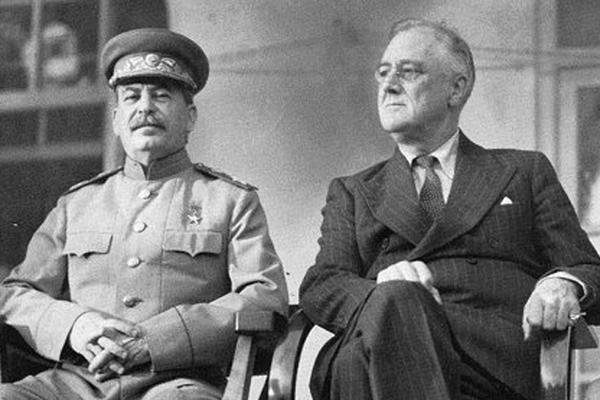(Korean War History) The Division of Korea, 1945-1948. Post #25.
Prof. Kathryn Weathersby

While the Soviet Union threatened its neighbor Iran after the end of the war, as we discussed in the previous post, it simultaneously put serious pressure on Turkey, another state strategically located on its southern border. The main issue was free passage for Soviet ships through the very narrow Turkish Straits, the only way out from the Black Sea to the Mediterranean Sea. Since Turkey can easily block Russian ships trying to sail from their Black Sea ports to the larger oceans, the issue of passage through the Straits has been the subject of treaties between the two states for centuries. But in March 1945, with German surrender still two months away, Moscow informed Turkey that it would insist on a revision of the latest treaty, the Montreux Convention of 1936.
Over the next year and a half, the Soviet government demanded that the Turkish government create a new security system for the Straits that would include the permanent presence of Soviet armed forces on Turkish territory. When Turkey rejected this demand, Stalin began an intense pressure campaign via the press and radio as well as more concrete pressure in the form of twenty-five divisions of the Soviet army sent to the Turkish border. As was the case with Iran, the decline of British influence in the region left the United States as the only power capable of resisting Soviet threats against Turkey.
In the spring of 1946 the US committed itself to a policy of “containing” Soviet expansionism. Therefore, when Moscow sent a harsh message to Ankara in August of that year demanding joint control of the Straits, President Truman responded with an equally strong message. He sent America’s most powerful aircraft carrier to the eastern Mediterranean and reinforced the US naval presence already in the region. This indication of US military support emboldened Turkey to resist Soviet demands, with the result that the Straits remained firmly under Turkish control.
In nearby Greece, a different situation concerned US officials, one with resonance to Korea. When the German army withdrew from Greece in October 1944, the anti-German resistance movement led by the Communist Greek People’s Liberation Army (ELAS) controlled the countryside. The efforts by British occupying forces to restore the Greek monarchy to power prompted an insurrection by ELAS. In February 1945, the month of the Yalta conference, the two sides agreed to hold internationally supervised elections to determine the political future of the country.
The elections were to be held in March 1946, the same month the Joint Soviet-American Commission began its meetings in Seoul. Greece’s leftist parties boycotted the elections, however, then took up arms against the newly restored monarchy. ELAS began to receive military aid from new communist governments in Yugoslavia, Bulgaria, and Albania. The Truman administration assumed that the Soviets were also supporting the Greek communists, but in fact, Stalin was ambivalent. He refused to recognize the rebel government in the north and did not provide significant aid to ELAS. His restraint was partly due to the fact that the USSR had no border with Greece across which it could easily send military forces and supplies. Another reason was that Stalin did not want to strengthen the regional power of Yugoslavia, because although it was communist it was not controlled by Moscow.
Washington was not aware of the limitations of Stalin’s support for Greek communists, however. It consequently reacted with alarm in February 1947 when the British Foreign Office notified the State Department in February that Britain’s economic crisis was so severe that it must end its support for Greece and Turkey and withdraw its forces from Greece. The British government appealed to the US to step in to save these two embattled Mediterranean states.
In the next post we will look at how the Truman Doctrine that emerged from the crisis in Turkey and Greece led to an expanded US commitment to supporting non-communist forces worldwide, including Korea.
[Sources: This post relies on the excellent account of the crises in Turkey and Greece found in William R. Keylor, A World of Nations: The International Order Since 1945 (Oxford University Press, 2009).]
a very useful article,tells the history of old war history,it is a work that gives science knowledge sir @wisdomandjustice
Interesting how the same two powers, (US and Soviet) have to quarrel in many different countries over the same issue, where its US Democracy vs Soviet Expansionism on Communism.
다음 포스팅도 기대할게요 ㅎㅎㅎ 트루먼 독트린이 그리스에 까지 영향을 미쳤군요.
Unpaid related articles
Related articles
Interesteem(@interesteem) is a service that recommends related articles using DeepLearning.
Please write an article with #interesteem tag.